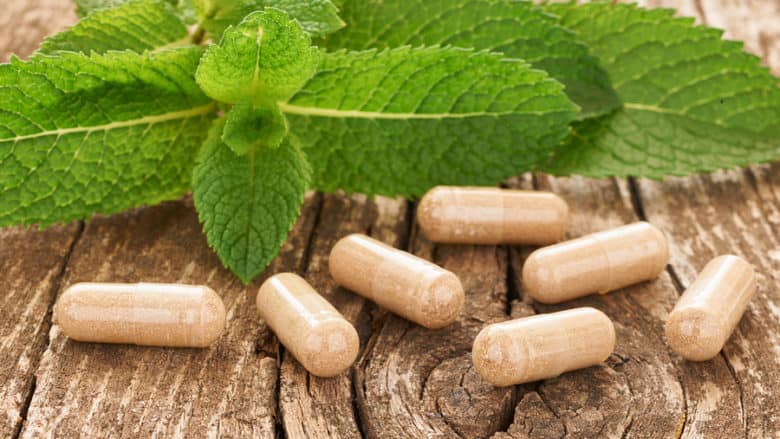
Natural health supplements (vitamins, minerals, enzymes, and herbs) build on the nourishing, healing power of food.
The debate on their use continues in US medicine while peoples all over the earth have used them through the ages as pillars for natural healing and health.
Survey’s show that many in the US rely on these 7 “myths” to guide them in supplement use. Here we challenge their truth.
Common Natural Health Supplements Myths
#1 You can make up for unhealthy eating by taking supplements
Supplements can never replace the complex and myriad health producing substances in healthy foods.For instance, plants contain thousands of phytochemicals. These nutrients release their healing action through synergy with other substances within their source, says James A. Duke, PhD, former chief of the Medicinal Plant Resources Laboratory.
#2 Most Americans get enough vitamins and minerals from their diet
A mere 9 percent of north Americans consume enough fresh produce to get the required daily dose of vitamins and minerals needed for optimal health reports the National Center for Health Statistics.
#3 You can get all the nutrients you need from a healthy diet
A healthy diet though necessary, is likely not enough to meet nutrient needs. This is due to increasing levels of environmental pollutants and stressors (see below) that create excess free radicals in your body. Excess free radicals lead to oxidative stress—a root cause of many chronic diseases.
- Pesticides and herbicides
- Synthetic fertilizers
- Chemical food additives
- Heavy metals
- Toxic chemicals in water
- Air pollution
- Radiation
- Hydrogenated vegetable oils
- Artificial hormones in meats
- Pharmaceuticals
- Chronic disease
- Chronic stress
Further, modern agricultural and business practices like the transport of foods over long distances, green picking of fruits and vegetables, and irradiation of foods to extend their shelf life rob them of much of their nutritional value.
Ray D. Strand, MD, in Bionutrition explains:
When you add cellular nutrition [a balanced blend of antioxidants, minerals and other key nutrients like vitamin D] to a healthy diet, you give yourself the absolute best chance of bringing oxidative stress back under control and protecting or even possibly regaining your health if you lost it.
#4 There is not enough scientific research to support taking natural health supplements
Although some medical doctors continue to doubt their need, there are many medical studies published in respected journals (New England Journal of Medicine, the Journal of the American Medical Association, and the British Medical Association’s journal, Lancet, and others) that support their use.Resources like Bionutrition and ConsumerLab.com provide reviews of these studies.Further, Chinese medicine, based on at least 5,000 years of scientific inquiry has long used supplements to support health, energy, and longevity.
#5 The Recommended Daily Allowance (RDA) indicates the amount of vitamins and minerals you need for optimum health
RDAs, set by the government, reflect the baseline amount of essential nutrients needed to support satisfactory growth and development, maintain body weight, and prevent acute nutritional deficiencies like scurvy (vitamin C deficiency), pellagra (niacin deficiency), and rickets (vitamin D deficiency).When it comes to vitamins and minerals, they may not provide the levels needed for optimal health.Reading supplement labels can be confusing. The government changed the term for these values from RDA to DRI (dietary reference intakes). The vitamin or mineral “% of Daily Value” or “% DV” found on labels reflects the percentage of that nutrient compared to the daily recommended intake (DRI).Dr. Strand reports:
The medical literature is showing us that we need to replace the entire concept of RDA [DRI] levels with new levels of essential nutrients needed to prevent or reduce the risk of long-term chronic degenerative disease.
#6 The Food and Drug Administration regulates supplements like they do drugs
Dietary supplements only need to meet food-labeling requirements. The government does not screen them for safety and effectiveness as they do drugs.Look for supplement products that show evidence of voluntarily meeting pharmaceutical grade good manufacturing practices (GMP) and US Pharmacopoeia (USP) guidelines. This means they purchase pharmaceutical grade raw products and produce them with the same quality control that is required for drugs.
#7 Natural health supplements are safe
Although generally safer than drugs, there are risks to taking supplements. For instance, kava may cause liver failure and fat-soluble vitamins like vitamin A can build up in your body to toxic levels. Niacin when used at dosages of 1,000 mg or more can cause liver inflammation. Supplements can also interact with both prescription and over the counter drugs, making the drugs less or more potent. As with most anything, you can overdo taking natural health supplements.
Key Points
Natural health supplements build on the nourishing, healing power of food. You likely need them to make up for the depletion of nutrients in our foods and to counteract the effects of environmental pollutants and stress.
Choose supplements that show evidence of good manufacturing practices and follow recommended dosages. If taking medications check with you doctor for possible interactions.
Be a well-informed natural health supplements consumer. Consult with your healthcare practitioner and choose supplements based on facts not myths!
Sources and Resources
ConsumerLab.com at http://www.consumerlab.com.
Duke, James, The Green Pharmacy Guide to Healing Foods (Rodale, 2008).
Reid, Daniel, The Complete Book of Chinese Health & Healing (Boston: Shambhala, 1995).
Schwartzberg, John, The Wellness Reports Dietary Supplements (Berkley CA: UC Berkley Wellness Letter, 2011).
Strand, Ray, Bionutrition (Rapid City, SD: Health Concepts, 2009).
